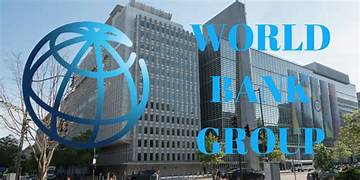World Bank counsels Abuja to rein in inflation to grow economy
By Jeph Ajobaju, Chief Copy Editor
Abuja has been counselled by the World Bank to reduce borrowing from the Central Bank of Nigeria (CBN) to reduce inflation, lift consumer spending, and grow the economy.
World Bank Lead Economist for Nigeria, Alex Sienaert, gave the advice at an economic review at Lagos Business School.
Sienaert commended the federal government for the economic reforms but stressed they have to be sustained for the economy to recover from current shocks and record considerable growth in the near future.
“The whole agenda of tackling inflation is obviously a huge one. Some ideas include reducing subsidised CBN lending to medium and large firms and the government borrowing from CBN,” he said.
“All of these things increase money supply and reducing that will be helpful to reduce inflation, and then replacing imports with FX [foreign exchange] restrictions with tariffs.”
Sienaert also stressed the increase in the pump price of petrol has added pressure on the economy.
He emphasised the need for a variety of solutions to mobilise more revenue in a way that spending will increase to tackle the real priorities in the country
__________________________________________________________________
Related articles:
Treasury borrowed N6tr from CBN in 2022 alone
Buhari raises Nigeria’s debt 472% in 8 years
Buhari to leave behind N80tr national debt
__________________________________________________________________
N8,000 palliative will benefit citizens and the economy
Seinart said the plan to disburse N8,000 as fuel subsidy removal palliative to 12 million households will raise by 10 per cent the available earnings and incomes of about 50 per cent of Nigerians, according to reporting by The PUNCH.
In his view, many Nigerians will benefit from the extra cash since it will ensure they do not have to skip a meal, pull a child out of school, or not go to the hospital.
“The other thing we often hear is that N5,000 or N8,000 is a trivial amount of money. I think people will be shocked to know that for a huge number of Nigerian households, it is a very significant amount of money.
“I believe the statistics are that about 50 per cent of Nigerian households are on less than N60,000 a month.
“So, if you are giving them N5,000 or N8,000 extra for six months to help tie them over, you are increasing their earnings and available incomes on the order of 10 per cent. For many households, it would be meaningful.”
Seinart stressed the amount to be spent on the cash transfer scheme is not enormous compared with the gains of subsidy removal.
“I know what has been in the news is the idea of a N5,000 or an N8,000 cash transfer to needy households for about six months, if you look at that the cost of that it would be equivalent to just about one month worth of spending on the subsidy that happened before it was cancelled under the old exchange rates still less than two months’ worth under the new one.
“So, it is not actually an enormous amount of resources relative to what is being freed up and it might just help many poor and vulnerable households get through this without having to do things that harm their prospects like pull a school out of school, or not go to the hospital, or skip a meal, whatever the case might be.”
However, Nigeria Labour Congress (NLC) Lagos chapter Chairman, Funmi Sessi, argued N8,000 will not help the average Nigerian.
“Looking at the money and the effect of the subsidy removal that has escalated the prices of everything in the market, I wonder what the N8,000 can do for a family in a month.
“I wonder what it can buy and the services it can render for 30 days; N8,000 cannot take care of a family for a week; it is not possible; it is going to be like a drop of water in the ocean,” she said.
Abuja has since backtracked on the amount, saying it will be reviewed.












